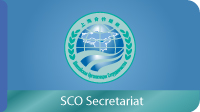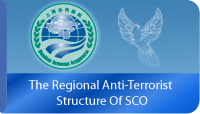|
|
 |
| US withdrawal from Afghanistan: Z hour for entire region |
| 25.03.2015 16:10 |
Viktoria Panfilova |
|
|
|
The day when troops of the Western coalition will leave Afghanistan is drawing nearer. The initial scenario envisaged that out of 63,000 US servicemen in Afghanistan, about 10,000 will stay to maintain stability after 2014. However, due to disagreements with Afghanistan’s President Khamid Karzai, Washington announced the possibility of the “zero scenario” – a complete withdrawal of its troops.
This announcement has given experts grounds to talk about the inevitable collapse of the situation in Afghanistan and, consequently, destabilization of the situation in neighboring Central Asian states. Opinions have been voiced that some states in the region may break up and new ones appear on the world map. It is possible that the region will be seriously destabilized by radical Islamic groups. Russian Foreign Minister Sergei Lavrov has said that Uzbek and Tajik radical terrorist and extremist groups in the north of Afghanistan are nurturing plans to penetrate the territory of the region’s post-Soviet republics.
However, there is a different point of view: stirring up emotions around Afghanistan and Central Asian nations is beneficial for countries that suffer from internal instability, i.e. Tajikistan and Kyrgyzstan, and also for Russia, which does not want presence of third countries in a region that is strategically important for it.
Experts believe that the incumbent authorities in Afghanistan are unstable. A majority of the population consider them illegitimate. Given all these aspects, the United States is handing over all responsibility for security in the country to the Karzai government and is simultaneously starting talks with the opposing party, the Taliban. The Taliban was in power in Afghanistan in 1994-2001. Judging by certain signs, it will return to power, not without Washington’s support.
The first step in this direction has already been taken. But it wasn’t successful. Last June, the Taliban opened a mission in Doha, Qatar – the Islamic Emirate of Afghanistan (this is how the country was called under the Taliban). When opening the mission, the Taliban’s spokesman Mohammed Naim said that the movement intended to establish friendly relations with all neighbors of Afghanistan and also with the United Nations, regional and international organizations and non-government institutions. A month later the Taliban shut down the mission, accusing the US and Karzai of not abiding by the agreements. Still, the movement does not doubt its soon return to power in Afghanistan for a second. At an international conference on Afghanistan in Meshkhed earlier this year, representatives of the Taliban tried to convince the participants that they would be building normal neighborly relations with their neighbors. They flatly denied the possibility of intrusion in neighboring countries, including Central Asian republics, something politicians and experts have talked about. The most important thing is to respect Islamic values, they maintained. Even US President Barack Obama has acknowledged that fight for power in Afghanistan will be keen.
Speaking at a conference in Berlin, he said that “…we're going to need to see Afghans talking to Afghans about how they can move forward and end the cycle of violence there so they can start actually building their country.” Karzai, however, believes that the Taliban is hiding behind slogans, but in fact favors continuation of military operations in the country.
“The Taliban will not stay aside from shaping of the authorities in post-US Afghanistan and will most probably become the main participant. At the same time, the Taliban has never posed a real threat to Muslim post-Soviet countries in Central Asia. This is proved by Afghanistan’s entire recent history after the fall of the Najibullah government,” says Doctor Shokhrat Kadyrov, editor-in-chief of the Central Asia website of the Institute of Oriental Studies, the Russian Academy of Sciences. He believes that demonization of the Taliban is beneficial for those who are trying to justify the existence of ruling elites in Central Asia, closed societies, ethnocratic states and for those who cannot work out an ideology that would really unite a nation and those who have real reason to fear that ethnic nationalism will be replaced with militant Islam. However, Kadyrov argues, this hypothesis is only partially true and is not the main reason for concern. In reality, the source of concern about the US withdrawal from Afghanistan is the fact that it “is leaving to stay.”
“No matter what they say, a limited US military troop will stay in Afghanistan for a very long time, so the country and extremist Islamic groups, which are in opposition to the authorities of Central Asian countries, can be used as a factor of potential political blackmail in the US policy towards pro-Russian Central Asia,” Kadyrov says. In this context, Central Asian governments are forced to provide all kinds of humanitarian assistance to Afghanistan.
This is what Kazakhstan is actively doing already. It participates in resolution of Kabul’s problem through economic and humanitarian projects. Notably, Astana has allocated $50 million to educate Afghan students. It gives Afghanistan grants and loans to build roads, schools, hospitals and provides humanitarian assistance. Turkmenistan and Uzbekistan are more oriented towards doing business in Afghanistan – selling electricity, delivering cargos by railway and building new roads.
Tashkent’s activity in building communications in Afghanistan is also easy to explain: it is dictated by the desire to get access to the southern seas. Tajikistan is trying to promote similar projects. In the summer, Dushanbe sells electricity to northern provinces of Afghanistan. Recently, an agreement was reached on the construction of a trans-Afghan railway. Yet it is China that has been asked to invest in the project, because Tajikistan doesn’t have the money.
“The Taliban coming to power in Afghanistan does not necessarily pose a military threat to Central Asian countries or Russia. But what can you do with those radical Islamic movements it patronizes. They are the Al Qaeda, the Islamic Movement of Uzbekistan and tens of other extremist groups that are active in northern Afghanistan,” says Leonid Gusev, expert with the MGIMO analytical center. He believes that there is a threat that they will turn their weapons against Central Asian states. All the more so, as in the late 1990s – early 2000s, the radical IMU already tried to explode the region. Twice, in 1999 and 2001, its militants attempted to reach the border of Uzbekistan (across Tajikistan and Kyrgyzstan), and in 2005, the Islamists managed to organize a massacre in Andijan from the foothold in Osh, Kyrgyzstan. So, not attempting to clearly predict further developments, experts agree that even if the situation is destabilized in only one country of the region, it will affect other states as well.
Yet some experts argue that militants cannot intrude in Central Asia across the Afghan-Uzbek border: this frontier is locked. Extremists and drug dealers can only go across Tajikistan and Kyrgyzstan. This prospect is a headache for both Tashkent and Astana, all the more so as Turkmenistan remains the “murky zone” of the post-Soviet Afghan border. Apart from Uzbek and Tajik bands, there are also other ethnic terrorist groups active in northern Afghanistan: Kyrgyz, Kazakh, Uygur, as well as natives of the Russian North Caucasus and the Volga region. It is no secret that these groups have been training to conduct operations in their own countries for about three years already – recruiting and training are done openly.
Meanwhile, Leonid Gusev believes that even though the situation in Tajikistan and Uzbekistan is under control, there are internal contradictions. And the forthcoming presidential elections in Tajikistan this autumn and in Uzbekistan at the end of 2014 make the authorities get ready for a possible escalation of the situation in their countries. “Kyrgyzstan deserves a separate mentioning, since it has been in the turbulence zone for a few years already,” the expert points out. “Atambayev is unlikely to remain in his chair till the end of the presidential term (2017).” He says the situation in Central Asia depends first of all on internal stability in the region’s countries. And they have repeatedly encountered threats of extremism and Islamic radicalism in recent years that come from inside and are related to both political, social and economic problems. This is especially true for the Fergana valley, a conservative, densely populated area, where the borders of Tajikistan, Kyrgyzstan and Uzbekistan meet.
Different prohibited extremist groups are active in these countries. Alongside the traditional IMU, Hizb ut-Tahrir, Tablighi Jamaat and Muslim Brothers, new ones are emerging – Jamaat Ansarullah, Jundullah (Allah’s Warriors), Jihadism, etc. Not only ordinary people, but also high-ranking officials, their children and representatives of law-enforcement structures are joining these religious movements. For example, members of Jihadism were recently detained in northern Tajikistan, and many of them were road policemen. The authorities are doing what they can to combat these bands. Notably, Tajikistan has in recent years re-registered mosques and attempted to bring home students who studied at foreign theological secondary and high schools.
The situation in Kyrgyzstan deserves separate consideration. At a meeting in autumn, the Security Council plans to discuss the issue of religions. The thing is that prohibited religious organizations function almost openly in the republic. The most popular one is Hizb ut-Tahrir, the goal of which is to create a caliphate in the Fergana valley. The radical organization is already attracting women and children. MP Dastan Dzhumabekov said at a parliament meeting that the organization’s members recruit teenagers, take them to Turkey for training and then bring them for warfare in Syria. The authorities refuse to comment until the investigation is over. A typical thing for Kyrgyzstan is the existence of terrorist underground, terrorist cells that are ideologically supported from abroad, with the Internet used to spread extremist ideas, said a serviceman of the State National Security Committee. Religious extremists have grown more active as the political situation in Kyrgyzstan has become tenser. Experts believe that there are interested people, organizations and even countries.
Kazakhstan is no exception. The situation is fairly difficult in the south of the country, especially in areas that are densely populated by the Uzbek and Uygur minorities. These peoples are generally more Islamist that the Kazakhs and there are more carriers of fundamentalist ideology. This is why Kazakhstan, like other countries in the region, is not guaranteed against spread of Islamic extremism, says Alexei Malashenko, Islamic expert and member of the research council of the Moscow Carnegie Center. “Twenty years ago, it was difficult to imagine presence of Islamist groups in Kazakhstan, but by now they have already asserted themselves. There was a surge in their activity in 2011-2012. On the other hand, the authorities are well aware of these processes, but they prefer not to rush the developments, closely watching the new trends,” the expert explains. At present, Islamization is spreading even to the country’s western, oil-producing areas, where the population is mixed: Kazakhs, Russians, Tartars and representatives of ethnic groups from the North Caucasus. “For its ethnic composition and ideology, it reminds of Russian regions: Tatarstan, Bashkiria, the Orenburg and Yekaterinburg regions, etc. This is the kind of the “broth” they have, and its borders are tentative: there are none. If conditions are favorable, they begin interacting, and I believe the process will sustain,” Malashenko says. “This proves once again that all Muslim fragments and parts of the Muslim world are interrelated.”
It is worth noting that Kazakh President Nursultan Nazarbayev said in a speech that he did not see grounds to expect a catastrophe in the region after the international forces’ withdrawal from Afghanistan, even though the issue of preserving inter-ethnic and inter-denomination peace in the country is quite relevant. In this last phrase, the shrewd politician in fact acknowledged the existing threat.
|
|
* Реестр иностранных средств массовой информации, выполняющих функции иностранного агента:
Голос Америки, Idel.Реалии, Кавказ.Реалии, Крым.Реалии, Телеканал Настоящее Время, Azatliq Radiosi, PCE/PC, Сибирь.Реалии, Фактограф, Север.Реалии, Радио Свобода, MEDIUM-ORIENT, Пономарев Лев Александрович, Савицкая Людмила Алексеевна, Маркелов Сергей Евгеньевич, Камалягин Денис Николаевич, Апахончич Дарья Александровна, Medusa Project, Первое антикоррупционное СМИ, VTimes.io, Баданин Роман Сергеевич, Гликин Максим Александрович, Маняхин Петр Борисович, Ярош Юлия Петровна, Чуракова Ольга Владимировна, Железнова Мария Михайловна, Лукьянова Юлия Сергеевна, Маетная Елизавета Витальевна, The Insider SIA, Рубин Михаил Аркадьевич, Гройсман Софья Романовна, Рождественский Илья Дмитриевич, Апухтина Юлия Владимировна, Постернак Алексей Евгеньевич, Общество с ограниченной ответственностью Телеканал Дождь, Петров Степан Юрьевич, Istories fonds, Шмагун Олеся Валентиновна, Мароховская Алеся Алексеевна, Долинина Ирина Николаевна, Шлейнов Роман Юрьевич, Анин Роман Александрович, Великовский Дмитрий Александрович, Альтаир 2021, Ромашки монолит, Главный редактор 2021, Вега 2021
* Сведения реестра НКО, выполняющих функции иностранного агента:
Фонд защиты прав граждан Штаб, Институт права и публичной политики, Лаборатория социальных наук, Фонд по борьбе с коррупцией, Альянс врачей, НАСИЛИЮ.НЕТ, Мы против СПИДа, Фонд защиты прав граждан, СВЕЧА, Гуманитарное действие, Открытый Петербург, Феникс ПЛЮС, Лига Избирателей, Правовая инициатива, Гражданская инициатива против экологической преступности, Фонд борьбы с коррупцией, Гражданский Союз, Российский Красный Крест, Центр Хасдей Ерушалаим, Центр поддержки и содействия развитию средств массовой информации, Горячая Линия, В защиту прав заключенных, Институт глобализации и социальных движений, Центр социально-информационных инициатив Действие, ВМЕСТЕ, Благотворительный фонд охраны здоровья и защиты прав граждан, Благотворительный фонд помощи осужденным и их семьям, Фонд Тольятти, Новое время, Серебряная тайга, Так-Так-Так, центр Сова, центр Анна, Проект Апрель, Самарская губерния, Эра здоровья, правозащитное общество Мемориал, Аналитический Центр Юрия Левады, Издательство Парк Гагарина, Фонд имени Андрея Рылькова, Сфера, Центр защиты СИБАЛЬТ, Уральская правозащитная группа, Женщины Евразии, Рязанский Мемориал, Екатеринбургское общество МЕМОРИАЛ, Институт прав человека, Фонд защиты гласности, Российский исследовательский центр по правам человека, Дальневосточный центр развития гражданских инициатив и социального партнерства, Пермский региональный правозащитный центр, Гражданское действие, Центр независимых социологических исследований, Сутяжник, АКАДЕМИЯ ПО ПРАВАМ ЧЕЛОВЕКА, Частное учреждение Совета Министров северных стран, Центр развития некоммерческих организаций, Гражданское содействие, Центр Трансперенси Интернешнл-Р, Центр Защиты Прав Средств Массовой Информации, Институт развития прессы - Сибирь, Фонд поддержки свободы прессы, Гражданский контроль, Человек и Закон, Общественная комиссия по сохранению наследия академика Сахарова, Информационное агентство МЕМО. РУ, Институт региональной прессы, Институт Развития Свободы Информации, Экозащита!-Женсовет, Общественный вердикт, Евразийская антимонопольная ассоциация, Чанышева Лилия Айратовна, Сидорович Ольга Борисовна, Таранова Юлия Николаевна, Туровский Александр Алексеевич, Васильева Анастасия Евгеньевна, Ривина Анна Валерьевна, Бурдина Юлия Владимировна, Бойко Анатолий Николаевич, Гусева Ольга Андреевна, Дугин Сергей Георгиевич, Пивоваров Андрей Сергеевич, Писемский Евгений Александрович, Аверин Виталий Евгеньевич, Барахоев Магомед Бекханович, Шевченко Дмитрий Александрович, Жданов Иван Юрьевич, Рубанов Роман Викторович, Шарипков Олег Викторович, Мальсагов Муса Асланович, Мошель Ирина Ароновна, Шведов Григорий Сергеевич, Пономарев Лев Александрович, Каргалицкий Борис Юльевич, Созаев Валерий Валерьевич, Исакова Ирина Александровна, Исламов Тимур Рифгатович, Романова Ольга Евгеньевна, Щаров Сергей Алексадрович, Цирульников Борис Альбертович, Халидова Марина Владимировна, Людевиг Марина Зариевна, Федотова Галина Анатольевна, Паутов Юрий Анатольевич, Верховский Александр Маркович, Пислакова-Паркер Марина Петровна, Кочеткова Татьяна Владимировна, Чуркина Наталья Валерьевна, Акимова Татьяна Николаевна, Золотарева Екатерина Александровна, Рачинский Ян Збигневич, Жемкова Елена Борисовна, Гудков Лев Дмитриевич, Илларионова Юлия Юрьевна, Саранг Анна Васильевна, Захарова Светлана Сергеевна, Аверин Владимир Анатольевич, Щур Татьяна Михайловна, Щур Николай Алексеевич, Блинушов Андрей Юрьевич, Мосин Алексей Геннадьевич, Гефтер Валентин Михайлович, Симонов Алексей Кириллович, Флиге Ирина Анатольевна, Мельникова Валентина Дмитриевна, Вититинова Елена Владимировна, Баженова Светлана Куприяновна, Исаев Сергей Владимирович, Максимов Сергей Владимирович, Беляев Сергей Иванович, Голубева Елена Николаевна, Ганнушкина Светлана Алексеевна, Закс Елена Владимировна, Буртина Елена Юрьевна, Гендель Людмила Залмановна, Кокорина Екатерина Алексеевна, Шуманов Илья Вячеславович, Арапова Галина Юрьевна, Пастухова Анна Яковлевна, Прохоров Вадим Юрьевич, Шахова Елена Владимировна, Подузов Сергей Васильевич, Протасова Ирина Вячеславовна, Литинский Леонид Борисович, Лукашевский Сергей Маркович, Бахмин Вячеслав Иванович, Шабад Анатолий Ефимович, Сухих Дарья Николаевна, Орлов Олег Петрович, Добровольская Анна Дмитриевна, Королева Александра Евгеньевна, Смирнов Владимир Александрович, Вицин Сергей Ефимович, Золотухин Борис Андреевич, Левинсон Лев Семенович, Локшина Татьяна Иосифовна, Орлов Олег Петрович, Полякова Мара Федоровна, Резник Генри Маркович, Захаров Герман Константинович
* Единый федеральный список организаций, в том числе иностранных и международных организаций, признанных в соответствии с законодательством Российской Федерации террористическими:
Высший военный Маджлисуль Шура, Конгресс народов Ичкерии и Дагестана, Аль-Каида, Асбат аль-Ансар, Священная война, Исламская группа, Братья-мусульмане, Партия исламского освобождения, Лашкар-И-Тайба, Исламская группа, Движение Талибан, Исламская партия Туркестана, Общество социальных реформ, Общество возрождения исламского наследия, Дом двух святых, Джунд аш-Шам, Исламский джихад, Аль-Каида, Имарат Кавказ, АБТО, Правый сектор, Исламское государство, Джабха аль-Нусра ли-Ахль аш-Шам, Народное ополчение имени К. Минина и Д. Пожарского, Аджр от Аллаха Субхану уа Тагьаля SHAM, АУМ Синрике, Муджахеды джамаата Ат-Тавхида Валь-Джихад, Чистопольский Джамаат, Рохнамо ба суи давлати исломи, Террористическое сообщество Сеть, Катиба Таухид валь-Джихад, Хайят Тахрир аш-Шам, Ахлю Сунна Валь Джамаа
* Перечень общественных объединений и религиозных организаций в отношении которых судом принято вступившее в законную силу решение о ликвидации или запрете деятельности:
Национал-большевистская партия, ВЕК РА, Рада земли Кубанской Духовно Родовой Державы Русь, Асгардская Славянская Община Асгардской Веси Беловодья, Славянская Община Капища Веды Перуна, Мужская Духовная Семинария Староверов-Инглингов, Нурджулар, К Богодержавию, Таблиги Джамаат, Русское национальное единство, Национал-социалистическое общество, Джамаат мувахидов, Объединенный Вилайат Кабарды, Балкарии и Карачая, Союз славян, Ат-Такфир Валь-Хиджра, Пит Буль, Национал-социалистическая рабочая партия России, Славянский союз, Формат-18, Благородный Орден Дьявола, Армия воли народа, Национальная Социалистическая Инициатива города Череповца, Духовно-Родовая Держава Русь, Русское национальное единство, Древнерусской Инглистической церкви Православных Староверов-Инглингов, Русский общенациональный союз, Движение против нелегальной иммиграции, Кровь и Честь, О свободе совести и о религиозных объединениях, Омская организация Русское национальное единство, Северное Братство, Клуб Болельщиков Футбольного Клуба Динамо, Файзрахманисты, Мусульманская религиозная организация п. Боровский, Община Коренного Русского народа Щелковского района, Правый сектор, Украинская национальная ассамблея, Украинская повстанческая армия, Тризуб им. Степана Бандеры, Украинская организация «Братство», Свидетели Иеговы, О противодействии экстремистской деятельности, РЕВТАТПОД, Артподготовка, Штольц, В честь иконы Божией Матери Державная, Сектор 16, Независимость, Организация футбольных болельщиков «Фирма», Молодежная правозащитная группа МПГ, Курсом Правды и Единения, Каракольская инициативная группа, Автоград Крю, Союз Славянских Сил Руси, Алля-Аят, Благотворительный пансионат Ак Умут, Русская республика Русь, Арестантское уголовное единство, Башкорт, Нация и свобода, W.H.С., Фалунь Дафа, Иртыш Ultras, Русский Патриотический клуб-Новокузнецк/РПК, Сибирский державный союз, Фонд борьбы с коррупцией, Фонд защиты прав граждан, Штабы Навального
|






















Leave a comment